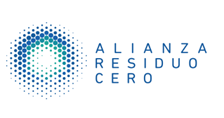
- COVID-19 is causing a serious lack of control in the urban waste management as, among other things, manual separation has been stopped in sorting plants.
- The industry is already pushing to delay the transposition of legislation limiting single-use plastics.
- The European Commission calls on the Member States not to lower their recycling rates and opt for sustainable systems.
- Post-COVID-19 decisions must take into account durable reduction solutions to protect the population and the environment.
COVID-19’s sanitary crisis is causing a serious lack of control in waste management at all levels: from the decrease in recycling in treatment plants, the increase in waste destined for landfills and incinerators, the expansion of landfills, even possible delays in transposing the waste directives due to industry pressures. Alianza Residuo Cero (Zero Waste Alliance) calls for courageous policies, based on waste reduction, and reminds the Government that the way out of this crisis will only be possible with measures that place the environment and people at the center.
Alianza Residuo Cero, made up of Amigos de la Tierra, Ecologistas en Acción, Greenpeace, Rezero, Retorna and Surfrider Foundation Europe, denounces that the petrochemical sector is putting pressure on Brussels to lower the measures contemplated in the Single Use Plastics Directive. Other countries like the United States are also coming under pressure from plastic producers, who are taking advantage of the COVID-19 crisis to lower environmental legislation.
The organizations demand that the Government and the European authorities not yield to the industry’s pressure and urges them to take the appropriate measures to reduce the consumption of single-use plastic and other materials, as well as to effectively manage the generated waste. The European Commission itself has pointed out that the health crisis cannot serve as an excuse for not advancing the ecological transition.
Another of the Alliance’s demands focuses on the current waste treatment in Spain. If recycling rates were already low beforehand, the health crisis may further reduce these figures. This is due to the current situation in treatment centers, where manual separation has been eliminated in sorting plants, through which materials were separated for subsequent recycling. Thus, less materials are recovered and, therefore, waste destined for landfill and incineration increases.
Once again, the European Commission has given a warning to the EU countries urging them to make a greater effort and not lower their recycling rates. This could be avoided with a more effective model that is not paralyzed by such a crisis. Just as it is essential to rethink our economic model, the closely linked waste management model also requires a 180° change. To this end, the reduction of waste in the production chain itself must be prioritized, as well as reuse, and, in waste management, selective collection at source must be considered guaranteeing higher recycling rates.
Single-use plastics are in no case a solution to the coronavirus crisis, but are intrinsically related to the environmental and climatic crisis that humanity is experiencing because of the current health situation. Furthermore, as different studies show, COVID-19 can remain for three days on plastic surfaces, so the only solution is to maintain the hygiene and disinfection measures recommended by the World Health Organization.
For this reason, Alianza Residuo Cero claims that waste reduction and reusable systems and packaging should be prioritized over false solutions of use and disposal. It is essential to support new ecologically viable, local and resilient economic models.
At the same time, the alliance encourages citizens to opt for local, fresh and healthy free-from-plastic foods, and reminds them that taking their own containers to stores will always be safer than the disposable plastic wrap that has gone through all the production and consumption chain.
More information (+34):
Anna Peña (director of communication for Rezero): 651 05 89 88
María Durán (responsible for natural resources and waste of Friends of the Earth): 671 865 839
Carlos Arribas (responsible for waste at Ecologistas en Acción): 676 048 331
Julio Barea (responsible for the Greenpeace waste campaign): 626 998 253
César Sánchez (Retorna): 644 16 59 65
Xavier (spokesperson for the Spanish delegation of Surfrider Foundation Europe) 653 371 524